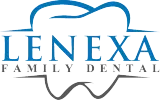
April showers bring May flowers, and May flowers bring . . . allergies. If you’re one of the millions of people who suffer from seasonal allergies, you might be suffering some dental side effects as well.
When you have pollen allergies, pollen triggers your body’s immune system to release histamines. Histamines are part of the body’s defense system. They cause the tissues in the nose and sinuses to become inflamed and swollen as they increase blood supply to these areas. They also cause your body to produce more mucus.
Normally, mucus from the sinus cavities drains into the nasal cavity and then down the back of the throat, where it mixes with saliva and is swallowed. We never even notice it. Until it’s allergy season. Unfortunately, our defense mechanisms can have some offensively unpleasant consequences.
- Headache & Facial Pain
Our sinus cavities are small hollow spaces in the bones of the head which are filled with air and, like our nasal cavities, are lined with mucous membranes. It’s these membranes, not surprisingly, which produce mucus. And though we might turn up our noses at this slippery topic, mucus is actually quite helpful for trapping and filtering out unwanted hitchhikers like bacteria, viruses, dust, pollens, and other pollutants in the air we breathe before they reach our lungs.
When histamines are released, normal mucus production increases to filter out those tiny pollen invaders. At the same time, tissue around the nose and sinuses swells up, which can trap mucus inside the sinus cavities. This, in turn, causes increased pressure within the sinuses, and this pressure brings on allergy-related headaches and facial pain.
- Nasal Congestion & Postnasal Drip
With the occasional runny nose or sneeze, you can blow your nose once or twice and that’s that. During allergy season, greatly increased mucus production might see you spending all day within reaching distance of your box of tissues. But when the tissue in your nose is swollen as well, you now find yourself with nasal congestion.
A stuffy nose means excess mucus has to exit somewhere else, which means this extra, often thicker, mucus all drains into the back of your throat. This is postnasal drip, and it can make you miserable in several different ways. Hoarseness. Coughing during the day. Worse coughing at night. Sore throat. Nausea. Difficulty swallowing.
All these allergy symptoms are uncomfortable enough! But, to add to our discomfort, allergies can lead to uncomfortable oral symptoms as well.
- Tooth Pain
A common result of allergies is tooth pain. How does this happen? It’s because of the way our bodies are designed. The maxillary sinus cavities are directly above the roots of our upper molars.
When sinus cavities are congested and sinus pressure builds up, it also puts pressure on these roots. The result is tooth pain, usually affecting several upper molars at once.
- Dry Mouth
One of the natural responses to a stuffy nose is mouth-breathing—we can’t go without air, after all! But exposing the inside of the mouth to all that air dries out delicate gum and mouth tissues. It also reduces normal saliva flow. This can cause xerostomia, more commonly known as dry mouth.
Because saliva neutralizes acidity in the mouth and washes away bacteria and other germs, lower saliva production means greater risk of cavities, infections, and bad breath. Dry mouth can also cause gum irritation and gingivitis, because less saliva means more harmful bacteria build-up between the gums and the teeth.
- Antihistamines & Your Oral Health
If histamines are the problem, are antihistamines the obvious solution? This is a good question for the doctor or your physician. Antihistamines can be very drying—so you might find you’re experiencing dry mouth even when all those other pesky allergy symptoms have disappeared. And, if you already suffer from xerostomia, it’s especially important to get your doctor’s advice before buying over the counter antihistamines.
In allergy season, just like any other time of the year, be sure to hydrate and keep up with brushing and flossing for fresh breath and healthy teeth and gums. Talk to the doctor if you have persistent tooth pain, dry mouth, or irritated gums—it’s always best to rule out other causes like infection or decay.
But, if your problems are caused by allergies, you don’t have to wait until the next snowfall to get relief. Talk to your doctor or allergist for ways to reduce or eliminate your symptoms before allergy problems start blooming into dental problems. You’ll breathe easier!




